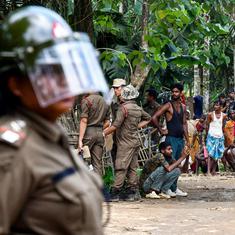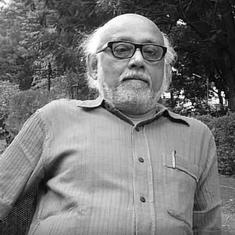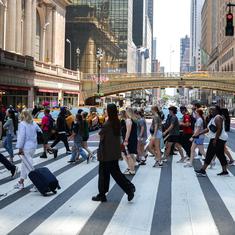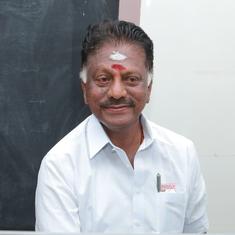Presidential debates were, in fact, absent from electoral politics for most of US history. Even after the first series of such debates was held, between John F Kennedy and Richard Nixon in the 1960 presidential election, the continuance of presidential debates was by no means assured. Indeed, since the election of 1960, presidential debates have been conducted by two clashing organisations – the League of Women Voters and the Commission on Presidential Debates.
Furthermore, it is not until 1976, sixteen years after the Kennedy-Nixon clash, that the debates were revived in presidential elections. Even as late as 1992, George H W Bush almost did not debate Bill Clinton during the presidential election of that year, parrying the issue until late into the election. This simply goes to illustrate the contested terrain of presidential debates in US history.
So the debate over debates is not unique to India. Even in the country that ostensibly provides a model for debates between candidates during elections, the question of whether to have such a system was not definitely answered until recently.
Voters assess candidates
Indians should therefore not look askance upon the device of election debates as if they are somehow naturally suited to America while being irreconcilable with the Indian parliamentary system. Americans did not reject the debate format simply because of its novelty and neither should we look upon the issue with a jaundiced eye. To debate or not to debate is a question that should be decided on the merits.
One school of thought holds that debates will not serve any edifying purpose. For instance, retired IPS officer and Bharatiya Janata Party chief ministerial candidate in Delhi Kiran Bedi recently expressed ambivalence about participating in debates before the Delhi elections, observing that she would rather prefer to debate after the elections on the floor of the Assembly.
However, a pre-election debate between the major candidates for the Delhi election would not be a “tamasha”, to quote Bedi. American political scientist Thomas M Holbrook has shown that presidential debates educate voters about candidates. Such an event, if well conducted, will serve the same purpose in India. Voters who become more informed about the candidates in an election will in turn be more likely to make a well-reasoned choice, based on the issues, when they vote. Many voters may not otherwise have access to reliable information about contested issues before the election. Holbrook asserts that less-informed voters benefit the most from debates.
Serving the gospel truth
In this way, voters can be exposed to the ideas of candidates standing for election to ascertain their relative competence. That is a key justification for having debates. Voters have the right to know whether candidates are able to defend and flesh out their election promises under interrogation.
Bedi claims that she believes in “delivery, not debate”. But how are the voters of Delhi to know whether they agree with her notion of delivery? On a recent episode of a news show, she berated anchor Arnab Goswami for not believing simply on her say-so that a file she brandished before the cameras was prepared by her and not someone else from the BJP. Has our political discourse sunk to the point that we simply have to digest as gospel truth what our political candidates tell us? It is precisely to scrutinise and evaluate the efficacy of such claims that we need and require debates during elections.
There is another point that is particularly relevant vis-à-vis the candidacy of Bedi. Her selection as BJP’s chief ministerial candidate was announced only a few days before the election. Consequently, voters are relatively uninformed about her positions on various issues regarding Delhi (which makes her statement on “delivery” even more vacuous). A particularly useful time to hold debates is when voters know very little about a candidate, says Holbrook, because that is when they can learn the most about him/her. That is all the more reason for there to be a debate before the Delhi election.










